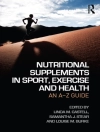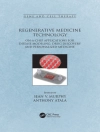This volume examines the impact of wealth on quality of life and subjective well-being (SWB). As wealth is related to economic, environmental and social features of societies, this volume serves as an important resource in understanding economic and SWB. It further discusses a variety of experiences and consequences of inequalities of wealth. Through the availability of wealth data in recent international surveys, this volume explores the multiple relations between wealth and SWB. Structured around four main pillars the book presents analysis of the topic at various levels such as theoretical and conceptual, methodological and empirically, ending with a section on distribution and policies.
قائمة المحتويات
Chapter 1. Introduction (Gaël Brulé & Christian Suter).- Part 1. Wealth & SWB : Theoretical and Conceptual Considerations.- Chapter 2. A Historiographic Look at the Link Between Wealth and SWB (Remy Pawin).- Chapter 3. A Review of Wealth & SWB (Ruut Veenhoven).- Chapter 4. ‘Poverties” and “Wealth”: Competing Definitions And Alternative Approaches to Measurement (Richard Estes).- Chapter 5. From the Wealth of Nations to the Wealths of Nations (Mariano Rojas).- Part 2. Wealth & SWB : Methodological Considerations.- Chapter 6. The Difficulty to Disentangle the Influences of Income and Wealth on SWB (Claudia Senik).- Chapter 7. Wealth-SWB Relationship in the Frame of the Theory of Subjective Wellbeing homeostasis (Robert Cummins). Chapter 8. Monetary Valuations of Life Conditions in a Consistent Framework: The Life Satisfaction Approach (Shunsuke Managi).- Chapter 9. From Wealth to Health: Evaluating Microfinance as a Complex Intervention (Neil Mc Hugh).- Part 3. Wealth & SWB: Empirical Findings-Household/Personal Wealth.- Chapter 10. Economic Resources and SWB among the Elderly Population (Moshe Semyonov).- Chapter 11. What Wealth Leads to SWB? Cross-National Evidence (Laura Ravazzini & Gaël Brulé).- Chapter 12. The Influence of Parental Wealth and Children’s Educational Decisions and Parents’ SWB (Nora Skopek & Oshrat Hochman).- Chapter 13.Personal Wealth and Happiness: A Work/Career Perspective (Louis Tay).- Part 4. Wealth & SWB: Empirical Findings- Housing Wealth.- Chapter 14. Home Ownership and Happiness in Switzerland (Gabrielle Wanzenried & Yvonne Seiler Zimmermann).- Chapter 15.Home Ownership and SWB in Czech Republic (Martin Lux).- Chapter 16. Housing Wealth and Tenure (change) Moderate the Relationship Between Divorce and SWB (Stéfanie André).- Part 5. Wealth & SWB: Empirical Findings-Consumption.- Chapter 17. Philanthropy and Happiness. Evidence from France (Charles Sellen).- Chapter 18. The Impact of Wealth, Household Net Income and Household Consumption on Life Satisfaction (Bruce Headey).- Chapter 19. Materialism and Satisfaction with Material Life (Joseph Sirgy).- Part 6. Wealth & SWB: Empirical Findings- Life Course and Life Events.- Chapter 20. Wealth as a Buffer for Life Events (Ursina Kuhn & Gaël Brulé).- Chapter 21. Wealth & Resilience (Jehane Simona).- Chapter 22. Life-course and Social Change (Andreas Motel-Klingebiel).- Chapter 23. Impact of Wealth Changes on SWB (Markus Grapka & Christoph Halbmeier). Part 7. Wealth Distributions & Policies.- Chapter 24. Widening Wealth Gap Between Rich and Poor Countries and Within Countries (Richard Estes).- Chapter 25. Has Middle Class Wealth Recovered? (Edward Wolff).- Chapter 26. Wealth, Trust and SWB (Anne Musson).- Chapter 27. Wealth Inequalities, Vulnerability and SWB (Tatjana Meschede & Tom Shapiro).- Chapter 28. Tax havens: How Does That Affect General Well-being? (Alex Michalos).- Chapter 29. Asset-Based Welfare and SWB in the UK (Beverley Searle).
عن المؤلف
Gaël Brulé (Ph D) is a post-doc researcher in happiness studies at University of Neuchâtel and Erasmus University of Rotterdam. His areas of expertise are sociology, cross-cultural comparison and happiness.
Christian Suter (Ph D) is a professor of sociology at the university of Neuchâtel. His areas of expertise are among others: sociology, social indicators, social inequalities and subjective well-being.












